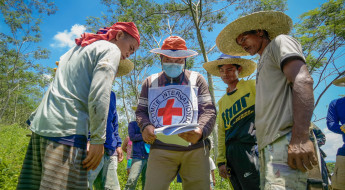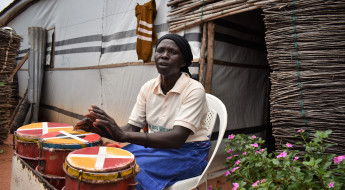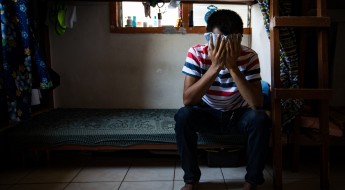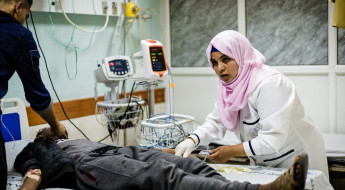Mozambique: Over 40 years of humanitarian work
 As the civil war (1976-1992) in Mozambique escalated, the humanitarian needs grew exponentially. In the late 70’s ICRC set base for the first time in Mozambique to give the much-needed support to the populations.ICRC Archives
As the civil war (1976-1992) in Mozambique escalated, the humanitarian needs grew exponentially. In the late 70’s ICRC set base for the first time in Mozambique to give the much-needed support to the populations.ICRC Archives The Mozambican civil war displaced 5.7 million people internally, this resulted to 1.7 million refugees. Children were amongst the most affected with over 25,000 children being separated from their families.ICRC Archives
The Mozambican civil war displaced 5.7 million people internally, this resulted to 1.7 million refugees. Children were amongst the most affected with over 25,000 children being separated from their families.ICRC Archives ICRC also supported the establishment of family links- This little girl had been separated from her parents during the conflict but through ICRC`s reuniting family link program she was reunited with her loved ones.ICRC Archives
ICRC also supported the establishment of family links- This little girl had been separated from her parents during the conflict but through ICRC`s reuniting family link program she was reunited with her loved ones.ICRC Archives The civil war ended but land mines were left behind.ICRC spent two decades supporting demining in more than 900 mine areas in the country and supported a total of 11 orthopedic centers including one children’s centre.ICRC Archives
The civil war ended but land mines were left behind.ICRC spent two decades supporting demining in more than 900 mine areas in the country and supported a total of 11 orthopedic centers including one children’s centre.ICRC Archives With escalation of the armed conflict in the northern province of Cabo Delgado, ICRC has scaled up its response to assist over 800,000 displaced people that represent over one-third of the population of the province.ICRC/ Daphne Lucas
With escalation of the armed conflict in the northern province of Cabo Delgado, ICRC has scaled up its response to assist over 800,000 displaced people that represent over one-third of the population of the province.ICRC/ Daphne Lucas ICRC is also responding to strengthen access to health by rehabilitating several health centers in the province, especially in the three regions that have received more displaced people, Pemba, Montepuez and Ibo island.ICRC/ Daphne Lucas
ICRC is also responding to strengthen access to health by rehabilitating several health centers in the province, especially in the three regions that have received more displaced people, Pemba, Montepuez and Ibo island.ICRC/ Daphne Lucas
The ICRC has been present in Mozambique for more than 40 years. During the 16-year-long civil war, ICRC assisted affected communities with essential food and non-food items, reestablishment of family links and access to health services. After the end of the civil war, ICRC supported with demining large parts of the central provinces that were contaminated during the war, a rehabilitation and orthopedic centre in Beira was established to help mine victims with artificial limbs.
In 2019, cyclones Idai and Kenneth devastated different parts of the central and northern regions in Mozambique. In cooperation with different Movement partners, the ICRC supported affected people to rebuild their livelihoods and rehabilitated health and water infrastructures.
Today, the ICRC focuses its support on Cabo Delgado. Early this year, ICRC scaled up its humanitarian response for people affected by the conflict by improving access to health and water. This was achieved by rehabilitation and construction of several health centres as well as improving water distribution systems and providing new water pumps.
Its ICRC's hope to continue doing so in the next year with a focus on assisting vulnerable displaced populations and host communities both on the mainland (cities of Montepuez, Pemba) as well as on Ibo islands.




